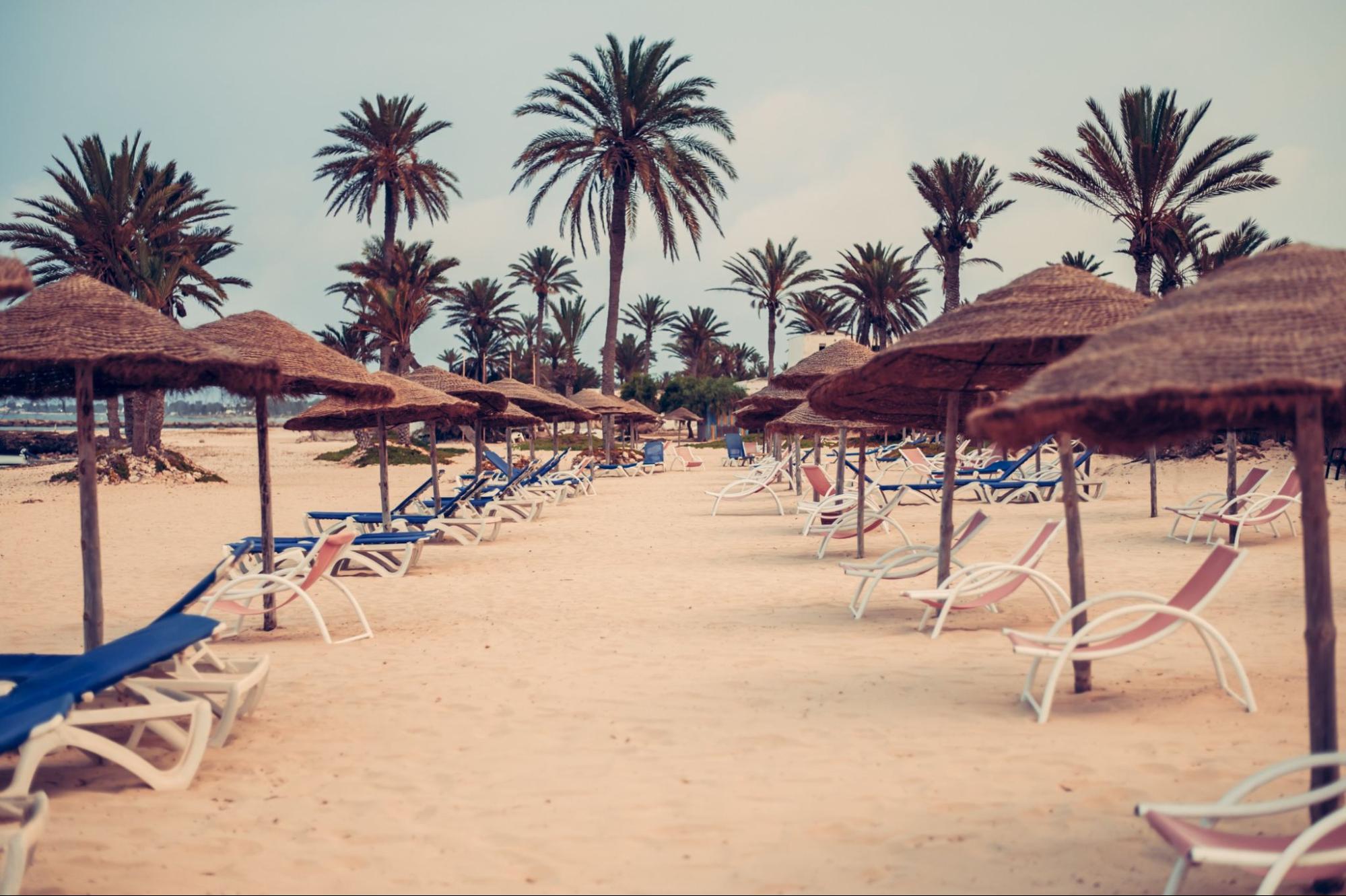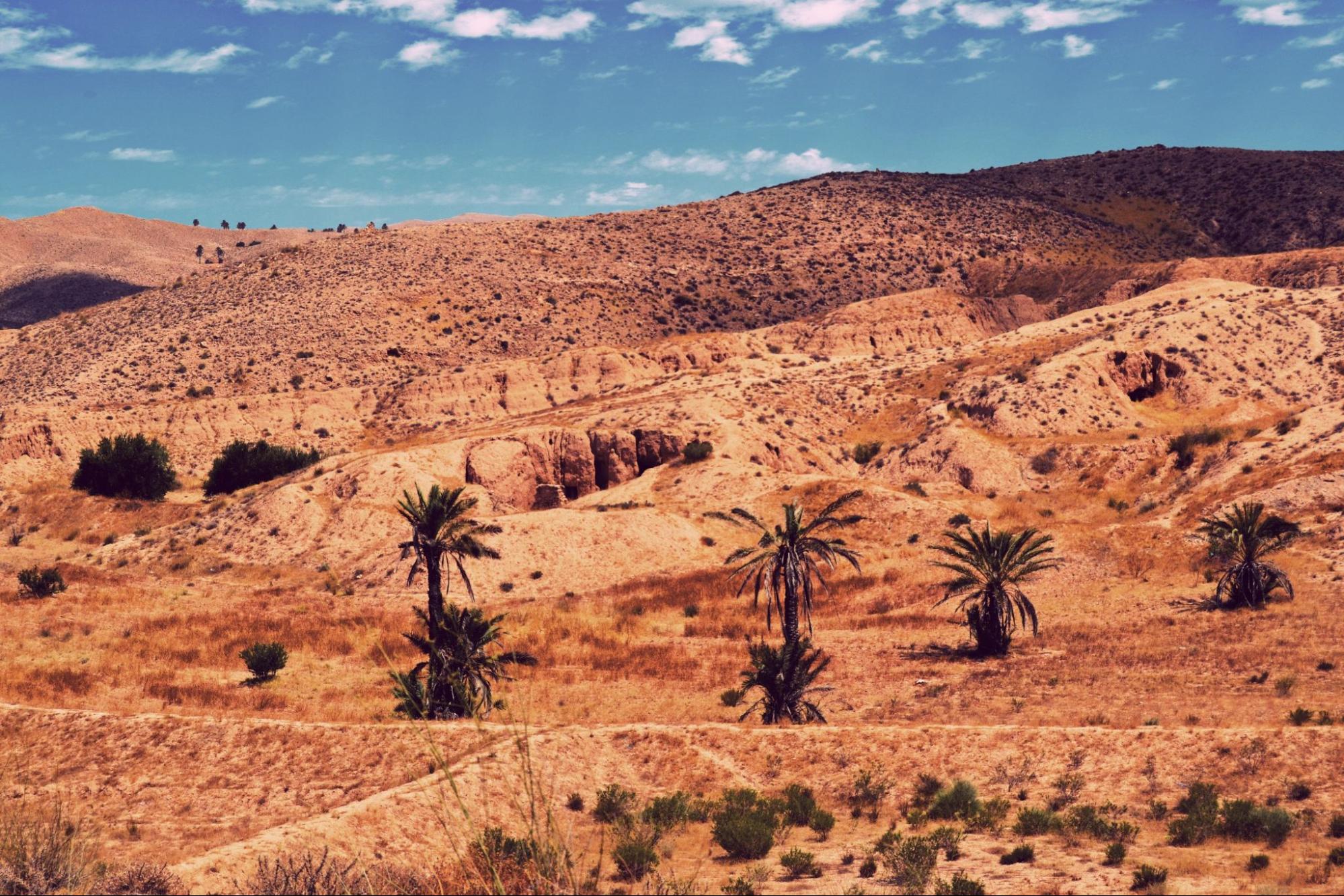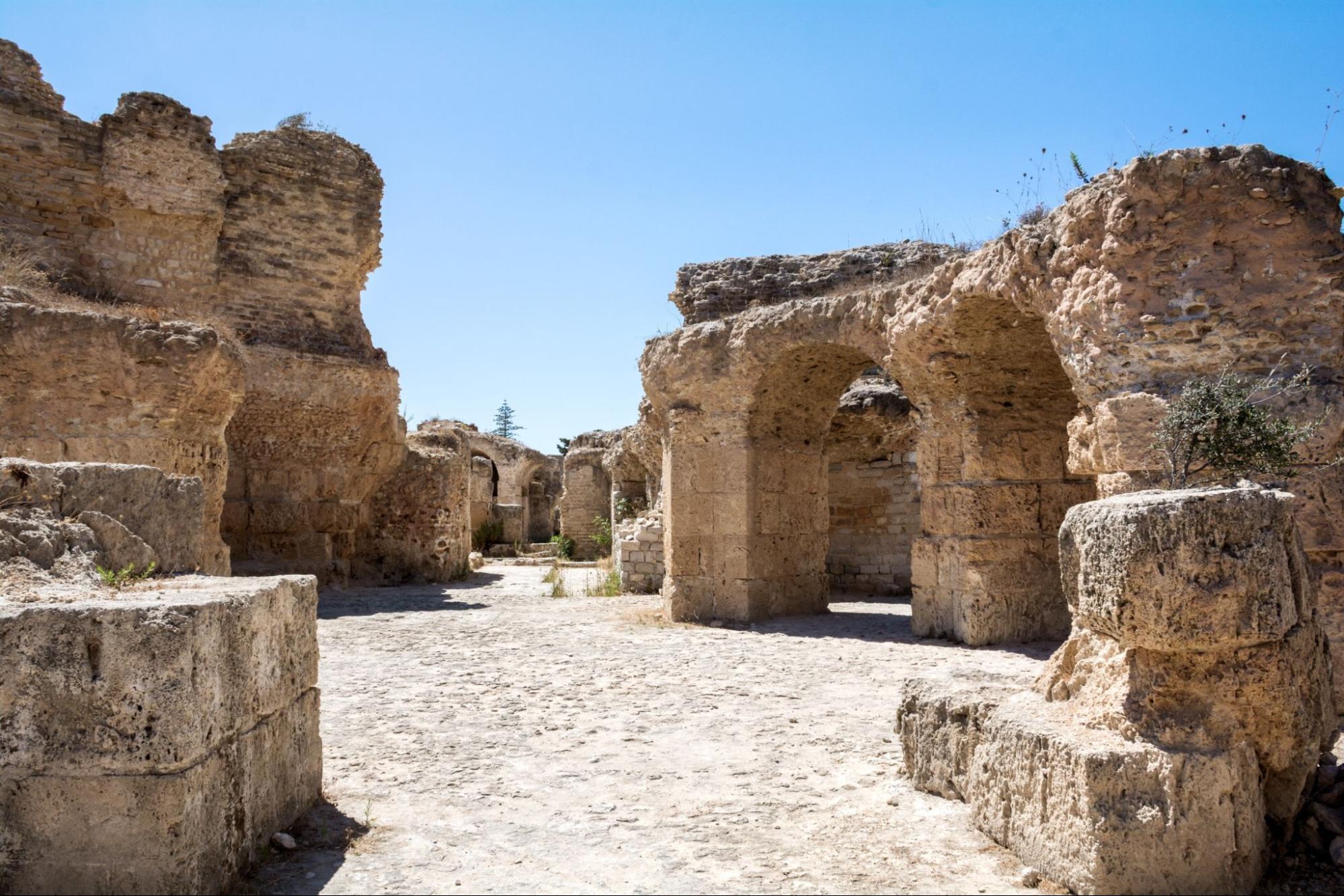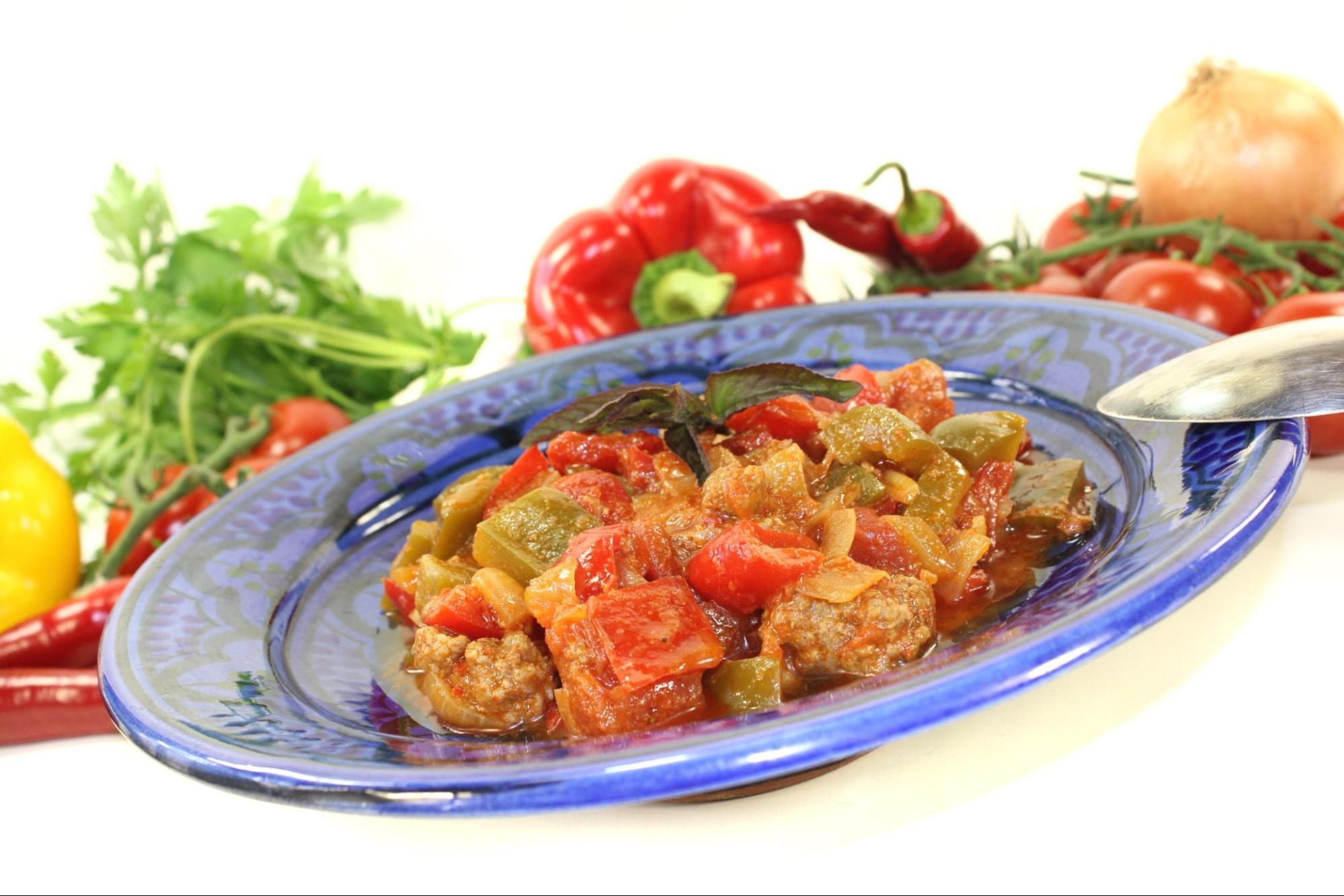Tunisia, located on the northern coast of Africa, is a country with a diverse range of landscapes, a rich history, and a promising array of attractions. If you want to go to Tunisia, you will need a Tunisia visa for your journey.

Whether you're interested in the enchanting Mediterranean coastline or the captivating Sahara Desert, Tunisia has something to offer every traveler. To make the most of your trip, it's essential to plan your visit during the best time of the year.
Tunisia's climate varies significantly across its different regions, which is largely influenced by its geographic location. The country can be divided into three main climate zones:
The northern and coastal regions of Tunisia enjoy a Mediterranean climate. This means that winters are mild and wet, while summers are hot and dry. The temperature variations between seasons are relatively moderate, making the northern part of the country an attractive destination throughout the year.
As you move inland towards the central and eastern parts of Tunisia, the climate becomes more arid, resembling a steppe climate. Here, rainfall is sparse, and the temperature variations between day and night can be quite significant.
The southern region, particularly as you approach the Sahara Desert, experiences a hot, dry, and semi-arid climate. Summers in the desert can be scorching hot, making it less ideal for outdoor activities.

Rainfall patterns in Tunisia also vary greatly. While the average annual rainfall in the country is around 158 mm, there is a substantial difference in rainfall amounts between regions. The south typically receives less than 100 mm of rain annually, while the north sees more than 700 mm.
The ideal time to visit Tunisia largely depends on your preferences and the activities you wish to undertake. Here's a detailed breakdown of the best times to plan your trip to Tunisia:
Spring is one of the most favorable times to visit Tunisia. During this season, you can expect long hours of sunshine, with daylight extending up to 13 hours a day.Daytime temperatures range from 16°C to 20°C, offering pleasant weather for outdoor exploration. Rainfall is relatively low, with an average of 40 mm in March and April, decreasing to around 22 mm in May. Spring is an excellent time for cultural tours, hiking, and other outdoor activities.
Summers in Tunisia are hot and dry, with July being the driest month. While it's a popular time for travelers to enjoy the Mediterranean coast, daytime temperatures can rise to 30°C or higher. If you plan to engage in seaside activities and swimming, June to September is ideal.
As autumn arrives, temperatures begin to cool down, making it a great time for a country-wide adventure. The average high temperature in September and October remains above 25°C, offering comfortable weather for exploring all parts of Tunisia, including the Sahara.
Winter in Tunisia is relatively cool, with January experiencing the lowest temperatures. The average lows in January and February drop to around 8°C. December can be characterized as an "uncertain" month with shorter daylight hours and cooler temperatures. Rainfall increases during this season, with up to 55 mm of precipitation. Evenings are cooler, so it's advisable to bring a jacket.
To plan your trip wisely and avoid large crowds, it's essential to understand the tourist seasons in Tunisia:
During the months of July and August, Tunisia sees the highest numbers of tourists, while the other months offer a quieter and more comfortable travel experience.
| Month | Average Low | Average High | Precip. | Precip Day |
|---|---|---|---|---|
|
January |
8.5 |
16.2 |
59.3 |
9 |
|
February |
8.3 |
16.6 |
57.0 |
8 |
|
March |
10.1 |
19.8 |
47.2 |
8 |
|
April |
12.8 |
22.4 |
38.0 |
6 |
|
May |
16.0 |
26.6 |
22.6 |
4 |
|
June |
19.5 |
31.2 |
10.4 |
2 |
|
July |
22.7 |
34.4 |
3.1 |
1 |
|
August |
22.9 |
34.4 |
7.1 |
1 |
|
Spetember |
20.7 |
30.2 |
32.5 |
4 |
|
October |
17.6 |
26.8 |
65.5 |
7 |
|
November |
13.1 |
21.5 |
56.0 |
7 |
|
December |
9.7 |
17.5 |
66.8 |
8 |
|
Year |
15.2 |
24.8 |
465.5 |
65 |
For a detailed understanding of Tunisia's weather conditions each month:
With this monthly weather overview, you can plan your trip to Tunisia according to your preferences and desired activities. Tunisia has something to offer in every season, whether you seek mild weather, cultural exploration, historical sites, or desert adventures.
Tunisia offers its unique charm in every season. Whether you prefer the mild weather of spring or the warmth of summer, or you're interested in cultural exploration, historical sites, or desert adventures, Tunisia has something to offer throughout the year. To make the most of your visit, consider your preferences and the type of experience you're seeking, and plan accordingly.
Traveling to Tunisia is a unique and memorable experience, but there are some essential things to consider:
With these tips and the knowledge of the best times to visit Tunisia, you can plan a memorable and enjoyable trip to this captivating North African destination.


Tunisia's food and drink scene is a delightful tapestry of flavors and traditions, and a culinary tour is an excellent way to explore its rich and diverse gastronomic heritage.
Tunisia has taken significant measures to enhance its security and safety for tourists. While certain areas may have travel advisories due to security concerns, most tourist destinations are generally considered safe. It's advisable to check the latest travel advisories and exercise caution in certain regions.
The best time to visit Tunisia is typically between April and June when the weather is pleasant, and there are fewer crowds. The cheapest time to visit is from November to January, and the least busy time is from October to December. July and August are the hottest and busiest months, making them less ideal for some travelers.
Tunisia boasts a range of attractions, including ancient Roman ruins like Carthage and Dougga, the historic city of Tunis, the Sahara Desert, the picturesque town of Sidi Bou Said, and beautiful Mediterranean beaches. Additionally, don't miss the local markets and souks for a taste of the culture.
While Arabic and French are the official languages, many people in the tourist industry speak English and other languages. However, learning a few basic Arabic or French phrases can enhance your travel experience and interactions with locals.
The currency in Tunisia is the Tunisian Dinar (TND). You can exchange money at banks or currency exchange offices. ATMs are widely available, and credit cards are accepted in many hotels and restaurants. It's advisable to carry some cash for small purchases and in more remote areas.
Tunisia is a diverse country, and the dress code can vary. In tourist areas, you can dress casually, but it's respectful to cover up in more conservative areas. When visiting religious sites, it's recommended to wear modest clothing. Swimwear is acceptable on the beach, but it's advisable to cover up when not on the beach.
You can explore Tunisia's diverse cuisine by visiting local markets, trying traditional dishes like couscous and spicy stews, and indulging in Mediterranean-inspired meals. Consider taking a culinary tour that allows you to taste local delicacies, visit olive oil and date production sites, and learn about the country's winemaking traditions.
It's generally recommended to drink bottled water in Tunisia to reduce the risk of waterborne diseases. While some areas may have purified tap water, it's safer to stick to bottled water, especially for tourists.
Respect for local customs is essential in Tunisia. Dress modestly when visiting religious sites, and avoid taking photos of government or military sites. It's also important to be aware of Islamic customs, such as modest dress and appropriate behavior during Islamic holidays.
You can contribute to the local economy by shopping at local markets, hiring local guides, and staying at family-run guesthouses or boutique hotels. These actions not only support the local economy but also provide employment opportunities for Tunisian communities.
To help us improve